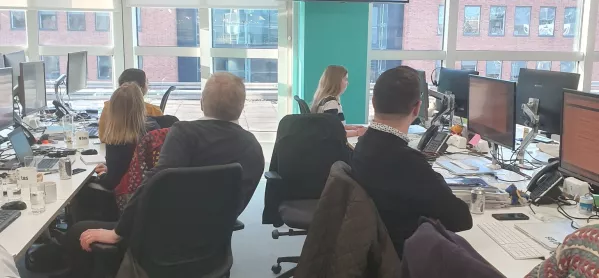I joined the Times Educational Supplement (as it then was) in June 2008 as a young(ish) news editor. I leave 12 years later as a middle aged-deputy editor.
For context, Gordon Brown was prime minister, Ed Balls (pre-Strictly) was secretary of state for children, schools and families, nobody had heard of Brexit or coronavirus, Donald Trump was that fella from the US version of The Apprentice, and Lehman Brothers was still a going concern (just about).
In education, academies were shiny monuments to New Labour futurism, Every Child Matters was the main policy focus of the government, the Ebacc was not even a twinkle in Dominic Cummings’ eye, nobody would have known what you meant if you’d said “off-rolling”, Tes Resources was just beginning to bubble out of the miasma, and Michael Gove was getting used to life as Balls’ shadow.
It hardly needs saying, therefore, that my career at Tes (as I’ve nearly got used to calling it) has overlapped with one of recent history’s most disruptive and tumultuous periods both for education and the wider world. It has also taken in the deepest media recession in this history of newspapers.
But the Tes newsroom has thrived.
In some ways, it is unrecognisable from the one I joined: the gigantic newsprint newspaper has become a glossy magazine filled with high-quality writing about pedagogy, curriculum and research, and the news and agenda-driven journalism has moved online, pulling in eye-watering audiences 24/7.
Our newsroom - once totally in thrall to the rhythm of producing a vast weekly - is now responsive to our readers in a way that was previously unthinkable.
In 2008, we published into a vacuum and the only real temperature check on how our work was being received was occasional news-stand sales figures and the weight of the weekly letters bag. But now, we know within seconds - courtesy of social media and real-time data - what teachers think of our output, for better or for worse. (In 2008, Facebook had a paltry 100 million members, barely anyone was on Twitter, and Instagram was yet to be invented.)
And yet at a macro level, the editorial recipe remains largely the same: Tes plays host to amazingly committed journalists producing award-winning education journalism and reporting, while at the same time publishing the best school-based writers in the world writing about their work.
The most revolutionary change is, in fact, almost intangible, taking in both the recognisable and unfamiliar - and it is at the heart of the explanation as to why Tes journalism continues to flourish.
A combination of the connection we now have with our readers courtesy of social media and the editorial strategy - set first by Gerard Kelly and more recently Ann Mroz - has resulted in our journalists being more embedded in our communities and more at one with the circadian rhythm of schools than ever before.
From being the first to write about the newest irritating playground fads (flossing, etc) to revealing the latest off-rolling scandal in granular detail, Tes journalists have never been more on top of their patch. And have never been more widely read.
Long may it continue.





